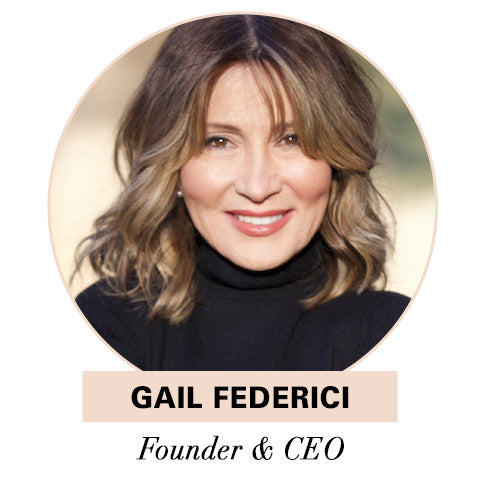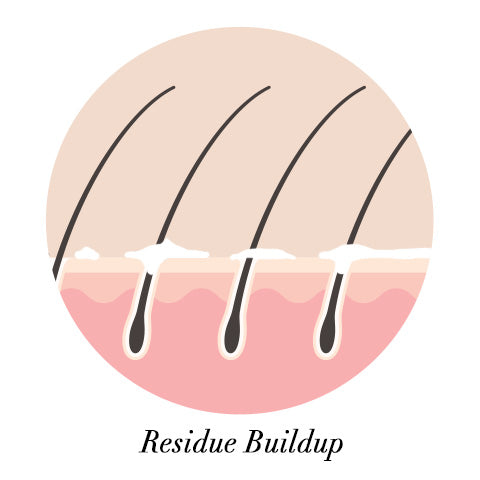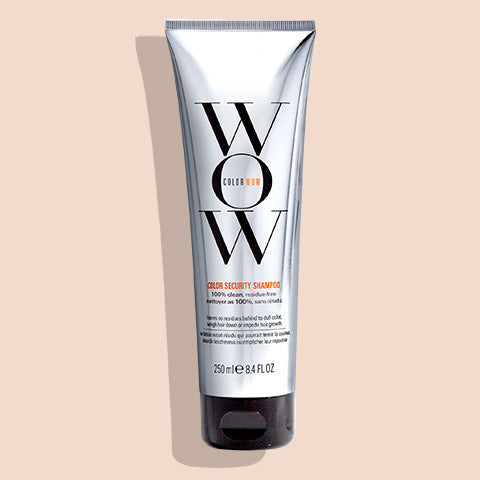What Is Co-Washing? Our Take on Co-Wash vs Shampoo
You may have already heard of co-washing, a buzzy term that’s been floating through the blogosphere. But what is co-washing?
“Co-washing” is a huge trend with a big fan base. This “conditioner only” way of washing hair is especially championed by curly girls, who are always on the prowl for easy hair hacks to hydrate their hair. While the method is beloved, it can be hazardous to the health of your hair and scalp.
WHAT IS A CO-WASH?

What does it mean to co-wash your hair? The term “co-washing” is short for “conditioner only washing”. Co-washing evangelists believe that most shampoos contain harsh ingredients (sulfates, detergents, other chemicals) that strip hair of moisture, leading to split ends, brittleness and breakage.
So their rationale is: instead of washing hair with shampoo, skip the step altogether and “wash” your hair only with conditioner.
Sounds like a pretty reasonable theory, right? Nope!
CO-WASH VS SHAMPOO: DOES CONDITIONER CLEAN YOUR HAIR?
The short answer is no. Washing your hair with just conditioner is a dangerous thing to do, and could cause more harm than good.
 Color Wow CEO and award-winning product development wiz, Gail Federici, is here to break it down for you. In her career, Gail has created dozens of shampoos (and tested bazillions!) on her own naturally curly, frizz-prone hair. So trust us, she knows when she says...
Color Wow CEO and award-winning product development wiz, Gail Federici, is here to break it down for you. In her career, Gail has created dozens of shampoos (and tested bazillions!) on her own naturally curly, frizz-prone hair. So trust us, she knows when she says...
“Shampoos that effectively clean your hair and scalp are formulated with 'surfactants'. Surfactants are cleansing agents that are absolutely necessary to remove dirt, pollutants, product buildup.
Co-washes are, by definition, 'conditioners'. They do not contain surfactants, i.e., cleansing agents.”
IS IT POSSIBLE TO WASH YOUR HAIR WITH CONDITIONER?
"No. Definitely not. To actually remove dirt and residues from scalp and hair, you must use a product that contains a surfactant (a cleansing agent)… a shampoo."
 Co-wash and 'no-poo' formulas (hair washes without cleaning agents) are formulated mostly with conditioning ingredients.
Co-wash and 'no-poo' formulas (hair washes without cleaning agents) are formulated mostly with conditioning ingredients.
These conditioning agents do not easily rinse out. They are 'film formers'. They are engineered to cling to hair because that is how they work: they stick to the hair to help soften, moisturize, etc. The reality is, when you opt to 'co-wash' your hair does not get clean - it just gets coated with layers of conditioning ingredients.
This residue builds up on your scalp, especially when you treat the co-wash as you would a traditional shampoo, i.e., massaging it through your hair and onto your scalp.
Not only does your scalp stay 'dirty' (which can lead to bacteria, infections, and skin problems) but these residues have been shown to cause all kinds of other problems. They flatten the hair, make color look dull, and block follicles--which can lead to the worst case scenario of all: hair thinning, hair loss… even balding!” says Gail Federici.
SO WHAT SHOULD YOU USE TO WASH YOUR HAIR?
Choose a mild, sulfate free shampoo like Color Wow’s Color Security Shampoo. It has no “stay behind” ingredients (like silicones, conditioners, moisturizers, oils) so it leaves your hair and scalp truly clean and fresh!
Check out Jade’s review of our shampoo below:
And if you have curly hair, consider trying Hooked, our 100% clean shampoo that helps anchor strands to reduce shedding.
Here's how to use it:
THEN you can moisturize, condition, and/or put a treatment on your hair… without putting yourself at risk for any adverse complications.
There is absolutely a role for conditioners in your hair care routine - don’t worry!
--
Get more advice on all things hair care and maintenance on the Color Wow Blog:







